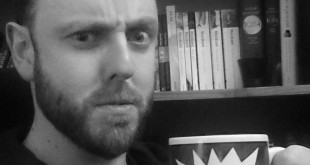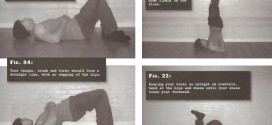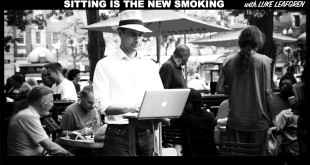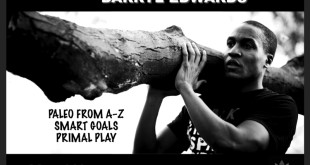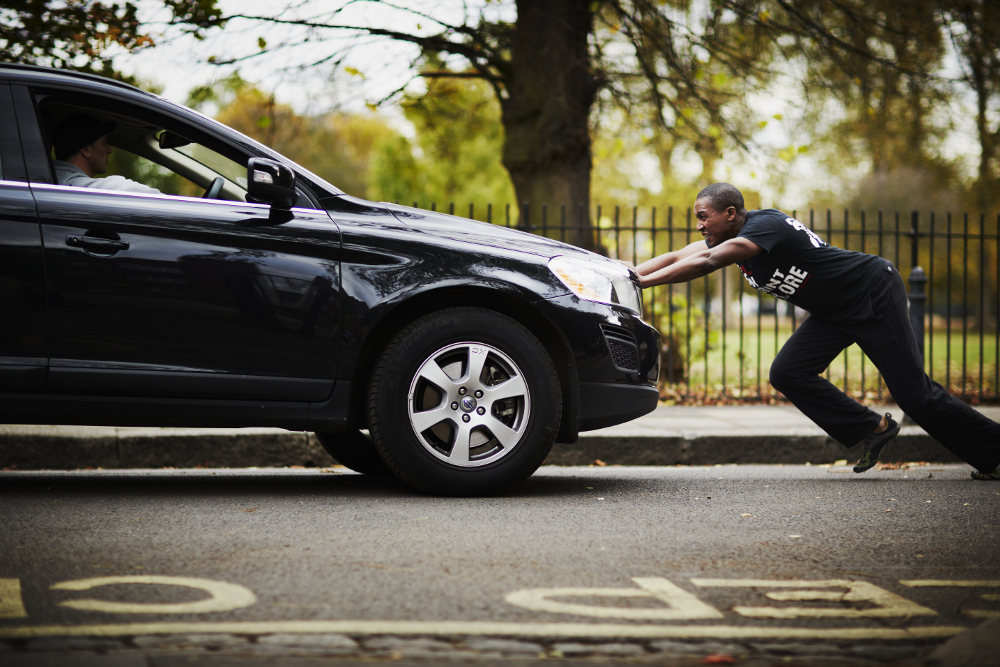 “The most powerful thing you can do is to remove processed foods, artificial foods, reliance on grains and even dairy.”
“The most powerful thing you can do is to remove processed foods, artificial foods, reliance on grains and even dairy.”
We would like to extend a huge welcome and thank you to Darryl Edwards for joining us here at Paleo Minds for a massive two-part interview. Darryl is the founder of Fitness Explorer Training and Nutrition and author of Paleo Fitness. On 25 October 2014 Darryl hosted the first ever UK Paleo-Primal conference Health Unplugged. You can find out more about Darryl on his website The Fitness Explorer.
Darryl, can you please tell us about your Paleo journey and the health issues you experienced pre-Paleo?
Thanks for inviting me. I’m really pleased to be a guest. In terms of my journey, it’s almost a decade now since I first took an interest in the Paleolithic lifestyle, the gateway to that was based on the diet and Paleo nutrition. My health prior to Paleo was okay – I didn’t feel as if I had any issues. I had annual check-ups and found out I had hypertension, very high blood pressure and a really poor cholesterol profile, so had an elevated risk of cardiovascular disease. I was anaemic, had high blood-glucose – so was actually pre-diabetic – and had a host of other issues. Obviously this didn’t happen overnight, there was a gestation period, but I had this early warning that things weren’t looking good for me in the long-term, based on my biomarkers at the time. I started investigating other options because I wasn’t happy when presented with medication as a solution for me and that medication being something I’d have to take for the rest of my life, so I enquired about lifestyle traces and was told, “eat a low fat diet, do some exercise, stop drinking, don’t smoke.” It was all fairly standard fare and I recognised I was making most of those lifestyle choices anyway. I researched further and dusted off Loren Cordain’s The Paleo Diet, which I’d had for a couple of years, and started to think about what I could do that was more aligned with nature – and the nutrition was one aspect. The Paleo diet looked like something I needed to focus on and the arguments within Loren Cordain’s book made sense. There was some resistance to Paleo, but I wouldn’t know how successful it would be until I gave it a whirl. So I tried a very strict Paleo diet for a few months before repeating my tests. What my doctor and I found was a remarkable transformation. My blood pressure was optimal and I was no longer pre-diabetic or anaemic. My overall health status was markedly improved. I decided to continue the Paleo lifestyle, in terms of nutrition, for as long as I possibly could. It made more sense than relying on prescription medication for the rest of my life. I explored what else I could do around this lifestyle, that wasn’t just food related. I looked at the type of exercise I was doing and recognised how important movement and fitness was. That was the second stage, and probably the more profound aspect of the change in my life at that time and since.
How do you think our understanding of Paleo nutrition has evolved since the release of Loren Cordain’s The Paleo Diet in 2002?
There’s been more research and nutritional science has moved on in the last decade and a bit. We’re constantly looking at ways to tweak and optimise whatever we do in terms of nutrition. Personally, I pretty much maintain alliance with the original Paleo prescription and haven’t deviated from it much. My opinion stems from the fact it worked for me back then. My health markers improved remarkably and I’ve been able to maintain it since, so why rock the boat? I know there have been lots of advances in certain areas: changes in macronutrient profiles, a focus on increasing saturated fat in the diet, for example. But I’ve kept the same profile and I’m happy with what I’ve done up to now.
For readers interested in beginning their Paleo journey is The Paleo Diet by Loren Cordain the best starting point?
There are probably books that are easier to read. The Paleo Solution by Robb Wolf is one of them, The Primal Blueprint by Mark Sisson is also a very good gateway text. It’s less strict than Paleo but it’s a great way to improve your diet and to look at other aspects of your life: sleep, movement, play, that sort of stuff. Back then [2002] there was only really The Paleo Diet and The Paleolithic Prescription which was out a decade or so before. I really like The Paleo Diet because it delves straight into the science of that era, and, personally, it was very convincing as a way of leading into this way of life. Really it’s up to the reader to decide what path they want to take based on looking at the base template. The most powerful thing you can do is to remove processed foods, artificial foods, reliance on grains and even dairy. The grey areas don’t count as much as the benefits that come from removing some of these anti-nutritious foods.
It’s interesting you mention dairy because I think that’s one of the most widely debated food groups in the Paleo and Primal community. I found removing dairy helped with niggling pains that still lingered on a Primal diet.
It’s really important to look at your individual needs and requirements when it comes to any difference in lifestyle change. I have a triage approach to deciding whether something is beneficial or not. Firstly what does the science say, but recognise that science can be wrong and is often changed as soon as new evidence presents itself so what does the best science have to say about the matter? Secondly what does common sense and my gut feeling say about this and thirdly looking at the bigger picture – what’s the historical context for eating a particular food or particular food group. If you look at those areas and weigh all three things up you’ll probably feel more comfortable about the decision you make.
In the Paleo world dairy is to be avoided according to the original prescription. In the Primal arena dairy is advocated as nutritious and healthy as long as it’s good quality, grass-fed and preferably raw milk. In my opinion, looking at the big picture and historical context we know milk was based on the agricultural revolution, herding was part of that process. We also know as human beings, as mammals, we tend to stop drinking milk when we wean onto real food. Once we stop being breastfed we start eating real food and produce less lactase, the enzyme that digests milk, and that seems to be the natural process for the life cycle of milk consumption within our diet. Of course as human beings and adults we can decide whether we believe something is nutritious and if we do we’ll continue to partake in that food. However the majority of the planet suffers from lactose intolerance. Those of Northern European descent tend to handle dairy better than anyone else. So I think this forms part of the reason why it makes sense for those of Northern European and Northern American decent to include dairy in their prescription, because they can handle it quite well. But there are a lot of people around the world for who dairy’s definitely not a wise choice and I sit on that side of the fence.
When people think about issues with milk they focus on lactose intolerance and may say they have no issues with lactose so are fine. However there is a lot of evidence linking milk proteins, like casein and betacellulin, with health problems. We need to take this into account when considering if dairy is a healthy food choice. The individual must decide and do their own research and investigation, but there’s a lot of evidence towards milk not necessarily being a healthful food source for humans.
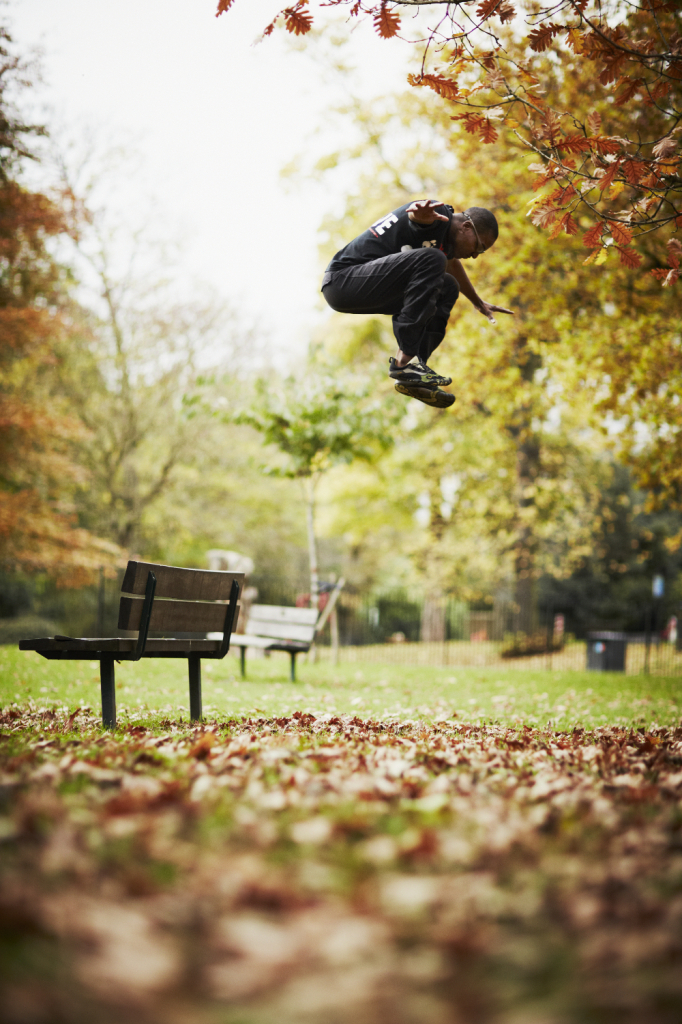 With regards to the science and your formal education in nutrition, did you have any challenges or issues as a result of coming up against conventional wisdom contrary to your personal experience and research?
With regards to the science and your formal education in nutrition, did you have any challenges or issues as a result of coming up against conventional wisdom contrary to your personal experience and research?
I often get asked for recommendations for nutritional courses. People say it’s difficult to find a course aligned to their values and philosophy, they just want to talk about eating a higher fat diet based around Paleo-Primal principles. To be honest I think there’s some danger there because as humans we have a tendency to lean towards confirmation bias, we like to see information that validates our current belief system and we lose the ability to question because we don’t want to be criticised based on our belief system. Initially I started to question things: what am I doing, I don’t believe in this low fat wholegrain diet you’re mandating as healthy, I don’t want to hear anything about it. Now I feel fortunate to have that conventional wisdom instruction because it allows me to view the Paleo-Primal template in context and identify what advice is useful. Not all conventional wisdom is harmful. Some of it is very beneficial. It’s good to see why people latch onto conventional wisdom because there are some aspects we want to dismiss and I want to be challenged. While learning [formally] about nutrition I evangelised against a low fat diet with too many carbs and was always shouted down and dismissed as someone who didn’t know what he was talking about. They were right, I didn’t have enough evidence, so decided to get some evidence to back up my claims. Sometimes the evidence was weak or wasn’t there. Sometimes the study is based on only eight people. If you have a scientific debate based on your belief system, you need to know what the other side is thinking and looking at in terms of their reference for information. I’m actually happy I had those challenges, faced them head-on and was prepared to embrace what I believed to be beneficial on both sides of the fence.
We need to look further than anecdotal evidence. You could say Big Pharma and food manufacturers don’t want to sponsor these studies so there aren’t any or you could look at the actual evidence and see where there are holes and weaknesses in your argument, then you can see where you stand based on the evidence you have. I think we should embrace criticism rather than just staying within our ivory towers and believing we know it all and everything we do is correct because people change their views, even within the Paleo community. They’re changing their views on an even more frequent basis than those in the conventional wisdom world. The jury’s still out and if anyone’s thinking about doing nutrition I would go the conventional route personally because it builds a lot more credibility in the world of science, and then you can focus on your specialism and do your own research. You can view research studies, look at who’s sponsored the study and find out what’s bogus and what isn’t.
That’s a very valid point and a good endorsement for taking a more conventional course before specialising and bringing your own evidence to the table.
I think it makes a lot of sense, because otherwise you may not act on your desire to learn more about nutrition. You may say “there isn’t the right course for me so I’m just going to do nothing at all. I’m only going to rely on somebody’s blog or on what I’ve read in a book.” We aren’t infallible and so will challenge ourselves based on what we read and we have to decide whether there is any validity. Just because there’s a reference to research in a text does it actually mean anything? Before I started researching as part of my qualifications I thought a reference showed how important and well-researched information was but sometimes going back you can say it was completely bogus, there was no control group, it wasn’t double-blind and you can completely rip it to pieces and recognise it wasn’t worth writing the reference, it’s completely invalid. But if I hadn’t gone the conventional route I wouldn’t have been able to read and assess studies in the same way.
Check out our Paleo Minds affiliate links below. Every time you buy through them Amazon will kick back a small portion of the sale to us which helps with the day-to-day costs of the website such as domain names, website hosting and artwork.
Buy Darryl Edwards’ books on Amazon UK
Buy Darryl Edwards’ books on Amazon US
 Paleo Minds Paleo diet, fitness and lifestyle.
Paleo Minds Paleo diet, fitness and lifestyle.

